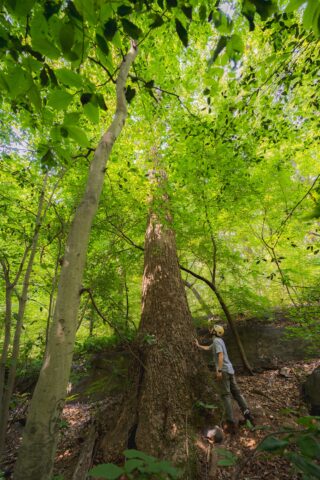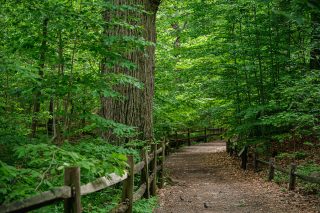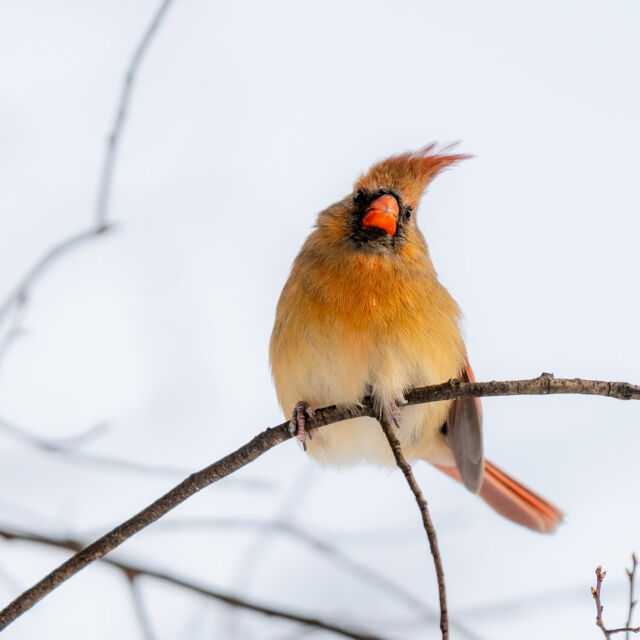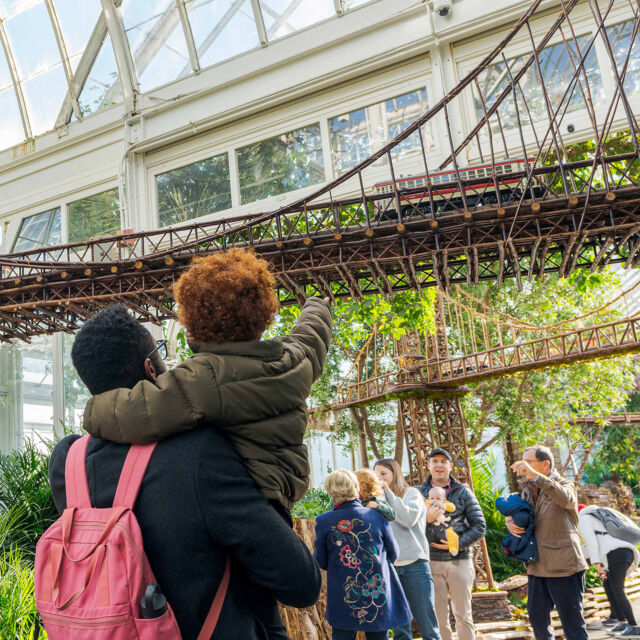Nurturing Nature Initiative: Why Botanical Gardens Are Key to Climate Resilience
Emma Grover is the Project Manager of the Nurturing Nature Initiative.
In a world where climate change and biodiversity loss increasingly define our collective future, the New York Botanical Garden (NYBG) is deepening its commitment to advancing plant-based solutions for climate resilience. Through the Nurturing Nature Initiative, NYBG is working to unlock the powerful, often underutilized potential of botanical gardens—each a unique institution rooted in place, yet united by shared goals and capacities—to restore ecosystems, support communities, and sustain biodiversity.

Working in partnership with Botanic Gardens Conservation International (BGCI) and with generous support from the Gordon and Betty Moore Foundation, Nurturing Nature is developing a science-based roadmap for enhancing climate resilience through plants. At its core, this initiative is strengthening the role of botanical gardens as trusted stewards of biodiversity and climate resilience, supporting their capacity to serve as hubs for education, conservation, and community-driven action. As part of this effort, the project team will collaborate closely with BGCI to steward and activate the Ecological Restoration Alliance of Botanic Gardens—a consortium led by BGCI—and to engage its broader global network of botanic gardens to accelerate knowledge sharing and amplify collective impact.
Botanical gardens are uniquely positioned to contribute to this work. They are home to living collections and seed banks that safeguard biodiversity, including rare and climate-critical species. Drawing on deep taxonomic expertise, gardens serve as hubs for climate-smart plant material, collecting, propagating, and deploying diverse species important for place-based restoration. They serve as living laboratories to develop, test, and adapt nature-based approaches, and they connect science with society through education, outreach, and community partnerships.
Yet, despite their many assets, gardens too often remain disconnected from global restoration and climate planning. That is what Nurturing Nature aims to change.
The Nurturing Nature team is working closely with a Climate Resilience Advisory Group (CRAG) made up of ten global experts whose backgrounds span areas such as restoration ecology, botanical science, environmental policy, and community-based conservation. Together, NYBG, BGCI, and the CRAG are developing an Action Plan that places plants at the center of climate solutions and activates the unique capabilities of botanical gardens. This plan integrates cutting-edge research, practitioner insights, and scalable strategies to position gardens as leaders in both local and global climate action. Through this effort, NYBG aims to equip gardens with the guidance and tools needed to lead large-scale ecological restoration projects both on their grounds and in surrounding landscapes to support climate mitigation outcomes. These gardens will form a coordinated network, united by the Action Plan, to advance plant-based solutions that reflect and support the needs of local communities.
Where will this work take place?

The International Union for Conservation of Nature (IUCN) emphasizes that ecosystem threats, biodiversity status, and conservation priorities influence key areas for plant diversity. Nurturing Nature will focus on high-priority regions, such as the Amazon Basin and Chocó Forest in South America, the Mata Atlantica in Brazil, tropical dry forests across Central and South America, Southeast Asia’s rainforests, and African savannas and grasslands, all vital for biodiversity but increasingly threatened by deforestation, land-use shifts, and climate change.
Work is already underway.
A global survey of botanical gardens and allied institutions, developed in collaboration with BGCI, is being released this summer to gather insights on current restoration efforts and assess interest in deeper engagement across the botanical community. CRAG members are preparing reports that address key challenges in scaling plant-based solutions, offering specific recommendations for botanical gardens along with real-world case studies to illustrate how gardens can contribute to overcoming these obstacles and supporting lasting positive impact. Throughout, the Nurturing Nature team actively engages with existing resilience and restoration frameworks, policies, and other stakeholders pursuing similar objectives, ensuring this initiative complements, builds upon, and strengthens ongoing efforts across the sector.
So why now, and why NYBG?
NYBG has a long-standing history in botanical science and a strong tradition of meaningful collaboration with partners worldwide. This depth of expertise underpins initiatives like Nurturing Nature, which advances both rigorous scientific research and community-led climate action. Our work is rooted in three specialized centers: the Center for Conservation and Restoration Ecology, the Center for Plants, People and Culture, and the Center for Biological Diversity and Evolution. Each is instrumental in carrying out the initiative, ensuring that local knowledge and global research are integrated to deliver effective, science-based solutions.

The Nurturing Nature Initiative showcases botanical gardens as go-to centers for climate resilience: trusted sources of plant material for restoration, training grounds for local practitioners, conveners of coordinated action, and more. As Nurturing Nature gains momentum, it is spotlighting the vital contributions of botanical gardens on the international stage. In 2025, the initiative will share its message through presentations and keynote talks at major events such as the World Conference on Ecological Restoration (SER2025), Semana de la Biodiversidad de Cali, Climate Week NYC, and the UNFCCC COP30 in Belém, Brazil.
The environmental challenges ahead are immense. But if we are to meet them, we need solutions that are scalable, grounded in biodiversity, and both led and supported by institutions that can bridge science, practice, and community engagement. Botanical gardens are those institutions. And through Nurturing Nature, NYBG is helping them come together and rise to the occasion.
SUBSCRIBE
Enter your email address to subscribe to this blog and receive updates on new posts.











